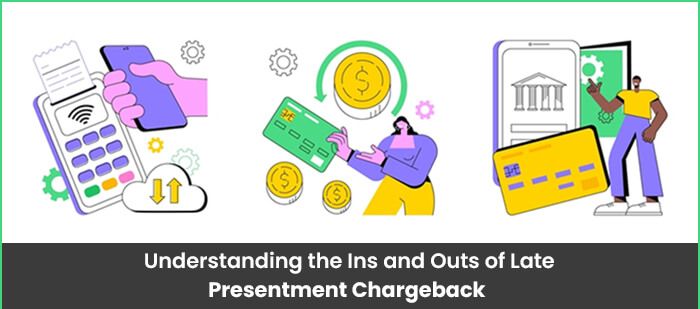
The world of e-commerce is often fraught with unfamiliar terminology and complex procedures. One such term that often puzzles merchants is the Late Presentment Chargeback. With an aim to demystify this concept, we dive deep into understanding Late Presentment Chargebacks, their causes, impact, and how you can prevent and dispute them.
Explaining Late Presentment Chargebacks
In the realm of e-commerce, Late Presentment Chargeback is a term that refers to a situation where the card-issuing bank reverses a transaction because the merchant did not submit the transaction data within a specified time frame, usually 180 days from the date of the transaction. If the merchant fails to meet this deadline, the bank can initiate a chargeback, effectively refunding the consumer’s money from the merchant’s account. The ins and outs of this process may seem a bit complex, but a thorough understanding can help merchants avoid this costly error.
Some Related Blogs
- Protecting Your Finances: Understanding Visa Dispute Monitoring Program
- Fraud No More: Tips on How to Stop Friendly Fraud
- Maximizing Chargebacks in the Age of Financial Fraud and AI Detection
- Protect Your Business from Merchant Credit Card Fraud Today
Reasons for Late Presentment Chargebacks
Late Presentment Chargebacks aren’t simply arbitrary, but the result of certain pitfalls merchants may stumble into. A prevalent culprit is often administrative lag or overlook in dispatching transaction details to the bank. This could also be attributed to an outdated payment system, or a transaction backlog during peak sales periods. Merchants who don’t stick to payment regulations are likely to find themselves entangled in these chargebacks as well.
The Impact of Late Presentment Chargebacks
The aftermath of a Late Presentment Chargeback is more than just a blip in your financial records – it can leave a lasting impact. Primarily, it leads to direct financial loss as the sale amount is refunded to the customer. But the damage doesn’t stop there. Banks can levy additional penalties on your business for not complying with submission deadlines. Continued instances could even lead to a suspension of your card processing abilities. And let’s not forget the blow it deals to your business reputation, potentially eroding customer trust and loyalty.
How to Prevent Late Presentment Chargebacks
Prevention is better than cure, and this is particularly true when dealing with Late Presentment Chargebacks. The cornerstone of prevention lies in timely transaction data submission. Integrating a sophisticated payment processing system that can automatically transmit data to banks is a solid first step.
![]()
Email us anytime!
Email customer service 24/7
![]()
Call us anytime!
Reach customer care 24/7 at +1 (888) 901-8653
Additionally, regularly scheduled audits of these payment procedures can help you pinpoint and eliminate any existing bottlenecks that cause delays. Lastly, educating your team about the importance and procedures for prompt submission not only ensures operational efficiency but also fortifies your business against unnecessary chargebacks.
Disputing Late Presentment Chargebacks
Contrary to popular belief, you are not helpless in the face of a Late Presentment Chargeback. Merchants can counterclaim if they think the chargeback is unfair. This is done by presenting a representment to the bank, showing proofs that the transaction data was submitted within the appropriate period. Be mindful though, this can be a tricky pathway requiring meticulous attention to detail and understanding of the banking rules and regulations. Hence, it’s not uncommon for businesses to hire the expertise of chargeback management companies, to sail smoothly through this complex process.
Understanding Chargeback Codes
Diving into the sea of chargebacks, you’ll notice each one is marked with a unique code. These codes are the identifiers, whispering the cause behind each chargeback. For instance, a Late Presentment Chargeback carries a different signature depending on the card company – it’s code 12.1 for Visa, 4834 for MasterCard, and American Express tags it as 4834. Comprehending these codes can be likened to learning a new language, where each symbol narrates a unique story. Once fluent, this knowledge can equip you with valuable insights, enabling you to predict the reason behind a chargeback and implement preventive strategies for future transactions.
The Role of Chargeback Management Companies
Chargeback management companies are like the lifeguards of the e-commerce world, safeguarding merchants from the rip tides of chargebacks. With a keen understanding of chargeback nuances, they can deftly guide businesses through the labyrinthine process of disputing a chargeback. But their role doesn’t stop at dispute resolution. They can also help merchants build a robust defense system, identifying potential chargeback triggers and strategizing preventive measures. So, consider partnering with one such expert firm, and let them help you navigate the choppy waters of chargebacks with ease and confidence.


